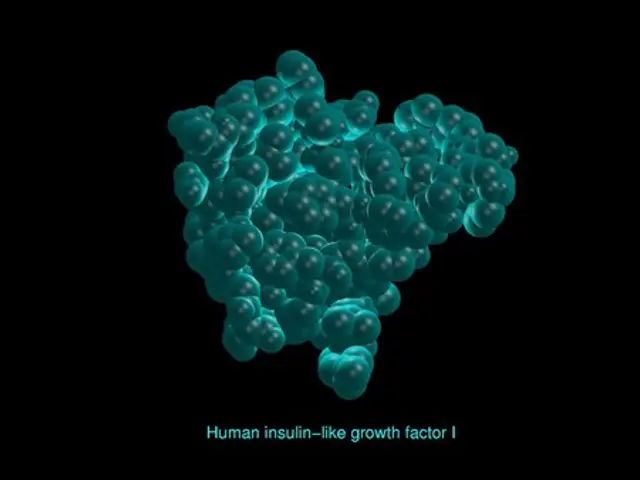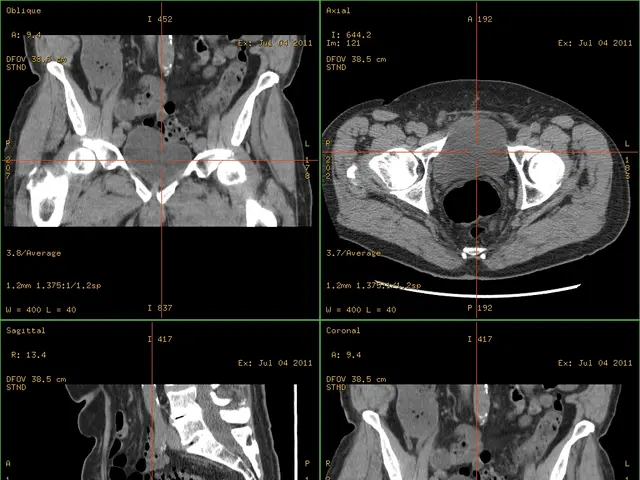Life, death, and the choices we make: Insights from medical ethicist Alena Buyx
"Humans generally avoid pondering their own mortality"
Alena Buyx, former chair of the German Ethics Council, delves into the complex world of medical ethics, raising questions that are essential for everyone, not just her field of expertise. In her book "Life and Death," she offers a comprehensive look at the issues that need clarification in society, and she encourages individuals to face these questions head-on.
"How do I want to live, and how do I want to die?"
These questions, though difficult, are central to Alena's work. The first question, concerning personal lifestyle and health, touches upon various aspects of medicine, illness, and well-being. The second question, on end-of-life decisions, is crucial to her field.
Avoiding the inevitable: Apathy and fear
Although many people claim they want to determine their own end, they shy away from advance directives and healthcare proxies. Alena attributes this to our inherent unwillingness to confront our mortality. This hesitation can manifest in various ways, such as reluctance to sign organ donor cards.
Clinical ethics consultation and its implications
Studies show that clinical ethics consultation often leads to patients living a bit longer. Additionally, anecdotal evidence suggests that people are sometimes treated longer than they would prefer. Understanding the ramifications of such decisions can aid in making informed choices.
Preparation for the future
Preparing for the future can bring peace and clarity to individuals, making it easier for decisions to be made on their behalf when necessary. The preferences of patients can range from wanting to fight until the very end to refraining from artificial ventilation and refused hospitalization. Discussing these preferences in advance, preferably documented in advance directives, can make many decisions easier.
Learning from challenging situations
The pandemic has presented unprecedented challenges, but it has also allowed us to become better prepared and more resilient. Facing these difficulties together can even be a meaningful experience.
Different scenarios and priorities
The question of how one wants to die often goes hand-in-hand with questions about how one wants to live. The state we are willing to endure depends on what we value and what we are unwilling to sacrifice. This is particularly important to consider when reflecting on end-of-life decisions, taking into account our specific life situations.
Guiding principles
In a pluralistic world, principles like self-determination, care, harm avoidance, and justice are valuable guides to help navigate difficult ethical questions. These principles do not need to rely on religious dogma and can be informed by various factors.
The role of technology and AI in healthcare
New developments in biotechnology challenge existing ethical assessments, and advancements in artificial intelligence further complicate the ethical landscape in healthcare. Ensuring that these technologies are deployed in a transparent and trustworthy manner, with human dignity as the overarching principle, is essential for an equitable and compassionate healthcare system.
Next steps in medical ethics and healthcare
Addressing the question of how we should employ and regulate emerging technologies in healthcare will likely be the central ethical concern for the next decade. Balancing technological innovation with human-centered patient care, while ensuring that resources are allocated effectively, will be the key to navigating the challenges that lie ahead.
[1] For more information on Alena Buyx's work, consider exploring her publications, such as "Human-Centered AI: An Ethical Framework for Artificial Intelligence," co-authored with H. Bott, A. Marlow, and O. Schnapp.
- In the pursuit of self-determination and care, it would be beneficial for individuals to embrace vocational training in health-and-wellness, mental-health, and community policy to equip themselves with the knowledge necessary for informed decisions regarding their lifestyle, illness, and end-of-life choices.
- As society grapples with the ethical implications of technology and AI in healthcare, it is crucial to focus on vocational training in these areas to ensure a transparent and trustworthy deployment of these technologies, keeping human dignity as the guiding principle and prioritizing human-centered patient care.







